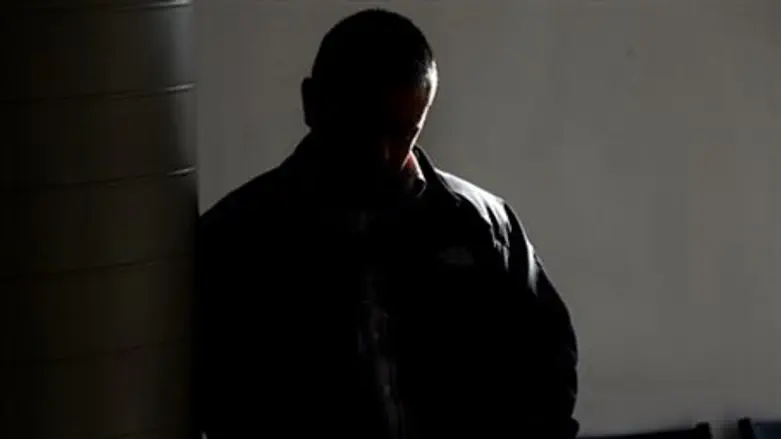
Sources in Israel's political right accused the Shin Bet (Internal Security) on Wednesday of fomenting internal disputes among residents of the small Samaria community Esh Kodesh, and creatng pressure to distance activist Pinchas Bar-On from the outpost.
Bar-On was accused by police of leading a group from Esh Kodesh to the nearby Arab village of Kusra in January, ostensibly to conduct a "price tag" nationalist vandalism attack. However, testimony from witnesses reveal that the Jewish group was far from Kusra and on its way to another Jewish community, Givat Hayovel, when it was set upon by an Arab mob from the village.
After the event, a fierce debate split Esh Kodesh as a group of residents sought to oust Bar-On for the "image damage caused to the community," while another group supported him in the face of media "slander" and external pressure calling for the community's destruction.
Sources say a turning-point occurred in the debate after one of the residents, who supported Bar-On, was summoned by the Shin Bet for questioning, and had his weapon taken away by security forces. According to the sources, after the questioning the man changed his position and pushed for Bar-On's removal as well.
Following the about-face, a letter signed by several of the Esh Kodesh residents was sent to Bar-On, asking him to leave the community for another more closely matching his "opinions and positions." The letter was only signed by a portion of residents, with others strongly supporting him.
'Red line crossed in ideological screening'
A source close to Bar-On said Wednesday "this is the crossing of a red line by the Shin Bet, which has pressured residents of the community. If we've reached a point where the Shin Bet decides who will stay in a community and who won't, on the basis of ideological outlooks, the settlements in Judea and Samaria are in trouble."
The source noted that "the court freed Bar-On and denied the police request to arrest him. The attempt to distance a man with a family and children from the community is a very serious step which legitimizes boycotting someone for being a right-wing activist."
Bar-On himself refused to comment on the painful debate surrounding him.
Shin Bet targeting Esh Kodesh
Shin Bet was accused of "turning into the KGB," after it held several men for many days over "price tag" vandalism suspicions without access to a lawyer or their families, and while reportedly subjecting them to psychological abuse.
It has also targeted Esh Kodesh many times in the past, with reports last July revealing an agent infiltrated the community and disguised himself as a right-wing activist to spy on residents. The community has also complained of harshly disproportionate police raids in the past.
Dani Dayan, the chief foreign envoy for the Yesha Council, spoke out against those involved in the Kusra clash, saying "the IDF is not the one that should issue distancing orders against these people. We are the ones who should distance them from our congregations, our communities, our midst."
Aron Katzov, spokesman of Esh Kodesh, said he had spoken to one of the right-wing leaders who criticized the group like Dayan, and after explaining the event was told "if i had known what really happened I would not have said what I said."
Arab "price tag" crimes pass without notice in the mainstream Israeli press; in February graffiti in Arabic praising terrorism was scrawled all over the grave of Elazar Hacohen, the son of Moses's brother Aaron from the Torah.